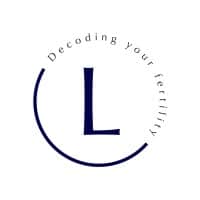FemTech is a rapidly emerging sector. Aiming to reduce the gender health gap and empower a new generation of empowerment, innovators are coming up with solutions that help people go through menopause and manage their menstruation – all the way through to addressing health knowledge gaps and IVF treatments.
Note: Not every person who menstruates is a woman, and not every woman menstruates. When we use the word ‘woman’ or ‘female’, we recognise and include the full range of underrepresented groups.
In 2022, Europe’s femtech startups raised $161 million – an incredible increase since 2020 when $75 million was raised. Now, in 2023, as impact investment and traction in plugging societal gaps continue to grow, we can expect market growth to continue in an upward spiral. It’s expected that the femtech market will be worth more than $103 billion by 2030 globally.
Women’s health has traditionally been underfunded, underrepresented and under-researched. From period myths to hormonal misconceptions, women’s health has for too long been put on the back burner in both the investment space and medical research space, and as a result, many women are left at a higher risk of health issues. Things are starting to change though. We chatted to Alice Pelton, Founder of period product marketplace The Lowdown in 2022 to learn more about that.
![]() Now, though, we turn our attention to what we can expect to happen for femtech in 2023. Essity Ventures, launched in 2020, is a strategic initiative of the leading global hygiene and health company Essity. Its mission is to break persisting barriers to people’s health, hygiene and well-being through the creation of innovative digital business models. Founded in Stockholm, Essity is a global hygiene and health company, dedicated to improving wellbeing and contributing to a healthy, sustainable and circular society.
Now, though, we turn our attention to what we can expect to happen for femtech in 2023. Essity Ventures, launched in 2020, is a strategic initiative of the leading global hygiene and health company Essity. Its mission is to break persisting barriers to people’s health, hygiene and well-being through the creation of innovative digital business models. Founded in Stockholm, Essity is a global hygiene and health company, dedicated to improving wellbeing and contributing to a healthy, sustainable and circular society.
We sat down with Maria Alvarez de Sotomayor Vergara, Venture Architect at Essity Ventures recently to talk all things femtech.
What exactly is FemTech?
The term FemTech describes technology that focuses on female health. Addressing women’s health needs with the use of technological and digital innovations is a relatively new concept, as for a long time, medicine was concentrated on the biological male body. FemTech applies to all sorts of solutions and products, from services or software to medical devices, wearables, apps, supplements, and even tech used to screen for breast cancer.
The term was created by Ida Tin, founder of the period tracking app Clue, in 2016. Since then, many other applications and tech companies have used it to address issues in women’s health.
How has it grown over the past year – and why?
Within the past 5 years, the FemTech space has literally been booming. For instance, we observed many new startups in the sub-sector of menstrual pain that have been created between 2018 and 2020. Also, during the pandemic various companies have evolved in FemTech. According to the agency FemTech Analytics, the total amount of funding has reached $19.7 billion in December 2022, a year-over-year plus of 35%. They expect this figure to even grow in the coming years since more and more people become aware of the importance of solutions designed specifically for the biological female anatomy. Other reasons for this development are trends like the feminist movement, digitalisation and personalised healthcare.
Looking at the different FemTech sub-sectors, the pregnancy and nursing space is now being much more funded. It is the biggest subsector in FemTech with many big players.
At Essity, we have placed a particular emphasis on the menopause sector, which has seen considerable growth in recent years. Here, we have launched our new brand Issviva. Initially, the space was relatively sparsely populated, with only a few players such as Kindra, a company specialising in vaginal lotions and supplements. However, the field has since become increasingly crowded. In addition to menopause-specific solutions, companies in the menstrual pain space, for instance, have begun utilising period tracking technology and AI algorithms to enable individuals to gain greater insight and understanding of their menstrual cycles.
Why are women’s health and women’s issues generally left behind – why do we need FemTech?
As mentioned above, research on health issues and disease has been focusing heavily on male anatomy for a long time. But of course, the biological male body differs in many ways from the biologically female body, not only regarding the reproductive system. For example, according to the New England Journal of Medicine, women having a heart attack are seven times more likely than men to be misdiagnosed and discharged, because they can have different symptoms than men. FemTech companies contribute to increasing women’s representation in the medical space by addressing this “gender health gap”. Having a dedicated healthcare genre that is specially tailored for women – and by women – will enable them to regain greater control over their bodies. In addition, there are still lots of taboos around women’s healthcare needs such as periods or menopause in many parts of the world. By putting female health in the focus of society, FemTech companies can help to break these taboos.
Are there any key FemTech players that are leading innovation in this space? Including startups, investors and networks?
In the field of accelerator programs, we should name FemTech Lab and Tech4Eva. In the community/network segment, there are Women of Wearables and Femtech Insider. Examples of Venture Capitalists to name are Alumni Ventures, Y Combinator and SOSV. Another key player to mention is Fermata Inc., a Tokyo- and Singapore-based company providing market entry services and sales channels focusing on women’s health with a great vision of transforming “taboos into triumphs”.
There are also very recognised startups in different categories such as menopause, fertility, menstruation, or sexual health. But I am especially fascinated by revolutionary tech devices such as the Oura Ring, a health tracker that collects data from the wearer’s finger.
As another example, we as Essity Ventures have two recent partnerships in pelvic health: Planet Mutu and Fizimed. Planet Mutu has developed a digital exercise program and web app to treat and prevent incontinence, focusing on mothers and pregnant women. And together with Fizimed, our brand Tena offers a medical device to strengthen the pelvic floor.
Is 2023 the year of FemTech?
Considering the importance FemTech has taken on in 2022, where we have seen incredible advances, this development is very likely to increase even more in 2023. Some examples of FemTech startups that are going to launch this year are Upliv Health, Brea Health or Coroflo.
To back up this assessment with some figures: according to Presedence Research, the global FemTech market size accounted for $ 51 billion in 2021 and is expected to surpass around $ 103 billion by 2030, poised to grow at a compound annual growth rate of 8.12% during the forecast period 2022 to 2030.
What key trends do you see arising over the next year?
Menopause is getting strong and innovations in this area can impact women´s health in the upcoming period. Menstrual cycle care has already been a huge industry and, together with industry trends such as sustainability, it can take an important role within the next year.
In addition, mental health support, hormone care, virtual clinics for anonymous and personalised care as well as novel biomarkers for diagnosis are currently booming.
Femtech startups we’re watching
Taking into consideration the growth of femtech and the increasing awareness we are now (finally) seeing around women’s health, we also wanted to highlight some startups that we think have an exciting year ahead:
 Daye: Founded in 2017, this UK-based startup is empowering women with better ways to understand, monitor and improve their menstrual, hormonal and reproductive health.
Daye: Founded in 2017, this UK-based startup is empowering women with better ways to understand, monitor and improve their menstrual, hormonal and reproductive health.
 Inne: Launched in 2017, Inne.io is a Berlin-based startup that empowers women to learn about and track their daily progesterone levels – a key indicator of reproductive health and an ovulation indicator.
Inne: Launched in 2017, Inne.io is a Berlin-based startup that empowers women to learn about and track their daily progesterone levels – a key indicator of reproductive health and an ovulation indicator.
 LEVY Health: Aiming to help women conceive, Berlin-based LEVY has developed CE-compliant software to decipher women’s fertility, helping women who want to have children decode their fertility as quickly as possible.
LEVY Health: Aiming to help women conceive, Berlin-based LEVY has developed CE-compliant software to decipher women’s fertility, helping women who want to have children decode their fertility as quickly as possible.
 Hormona: Founded in 2019, Hormona started as an online community and has since evolved into a platform empowering women to take control of their health and their hormones. Over the next year, Hormona will launch an at-home hormone monitoring system.
Hormona: Founded in 2019, Hormona started as an online community and has since evolved into a platform empowering women to take control of their health and their hormones. Over the next year, Hormona will launch an at-home hormone monitoring system.
 Hertility Health: Launched in 2020, Hertility offers fertility and hormone testing, menopause, miscarriage, postnatal care, polycystic ovarian syndrome (PCOS) and endometriosis testing.
Hertility Health: Launched in 2020, Hertility offers fertility and hormone testing, menopause, miscarriage, postnatal care, polycystic ovarian syndrome (PCOS) and endometriosis testing.




